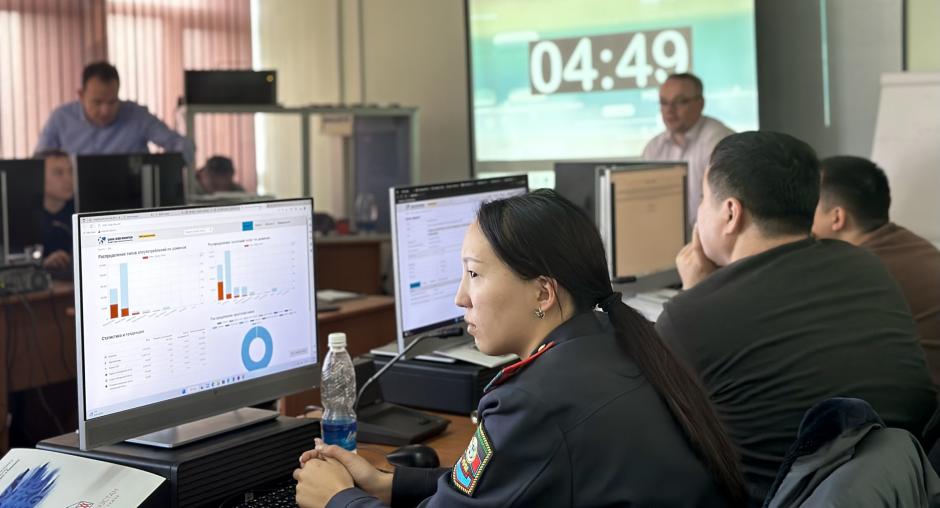From 21 to 25 November, the OSCE Transnational Threats Department, in close co-operation with the OSCE Programme Office in Bishkek, organized a course on cryptocurrencies and Dark Web investigations at the Academy of the Ministry of Internal Affairs of the Kyrgyz Republic.
“Both cryptocurrencies and the Dark Web have become useful aids and amplifiers of traditional crimes. The anonymity they offer makes them attractive for people with malicious intents. It is thus important that law enforcement officials understand key concepts in this area, and what implications they have for investigation of crimes,” stressed Alexander Eliseev, Head of the Politico-Military Department at the OSCE Programme Office in Bishkek, during the course’s opening.
Around 20 representatives from operational units of the Ministry of Internal Affairs, as well as the Academy’s staff, took part in the training. They learned about the main concepts and key trends in the areas of internetworking, anonymity and encryption, cryptocurrencies, obfuscation techniques, Dark Web, and Tor networks. They also practiced approaches and methods for cryptocurrency seizing, blockchain analysis, and searching on the Dark Web. The training was based on materials developed by the European Cybercrime Training and Education Group (ECTEG). It was delivered by two experts from Germany and North Macedonia.
“This is a second event related to cybercrime that the OSCE is organizing at the Academy this month. We are grateful that staff from the Ministry of Internal Affairs can benefit from international expertise and training materials,” said Tariel Abitov, the Head of the Academy of the Ministry of Internal Affairs of the Kyrgyz Republic.
The course was organized within the second phase of the OSCE extra-budgetary project “Capacity Building on Combating Cybercrime in Central Asia”, which is funded by the United States of America, Germany, and the Republic of Korea.
Read More: news.google.com









 Bitcoin
Bitcoin  Ethereum
Ethereum  Tether
Tether  XRP
XRP  Solana
Solana  USDC
USDC  Dogecoin
Dogecoin  TRON
TRON  Cardano
Cardano  Lido Staked Ether
Lido Staked Ether  Wrapped Bitcoin
Wrapped Bitcoin  LEO Token
LEO Token  Avalanche
Avalanche  Chainlink
Chainlink  Stellar
Stellar  Sui
Sui  Shiba Inu
Shiba Inu  Toncoin
Toncoin  USDS
USDS  Hedera
Hedera  Wrapped stETH
Wrapped stETH  Bitcoin Cash
Bitcoin Cash  Litecoin
Litecoin  Polkadot
Polkadot  Hyperliquid
Hyperliquid  Binance Bridged USDT (BNB Smart Chain)
Binance Bridged USDT (BNB Smart Chain)  Bitget Token
Bitget Token  Pi Network
Pi Network  Ethena USDe
Ethena USDe  WETH
WETH  WhiteBIT Coin
WhiteBIT Coin  Monero
Monero  Wrapped eETH
Wrapped eETH  Uniswap
Uniswap  OKB
OKB  Dai
Dai  Pepe
Pepe  Coinbase Wrapped BTC
Coinbase Wrapped BTC  Aptos
Aptos  Gate
Gate  Ondo
Ondo  Tokenize Xchange
Tokenize Xchange  NEAR Protocol
NEAR Protocol  sUSDS
sUSDS  Internet Computer
Internet Computer  BlackRock USD Institutional Digital Liquidity Fund
BlackRock USD Institutional Digital Liquidity Fund  Cronos
Cronos  Mantle
Mantle  Ethereum Classic
Ethereum Classic